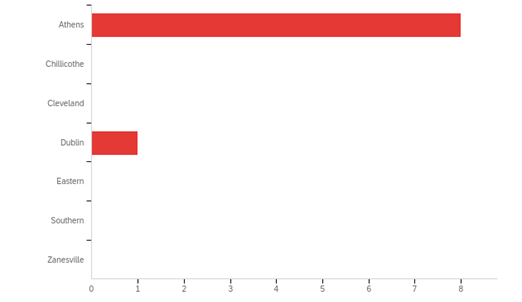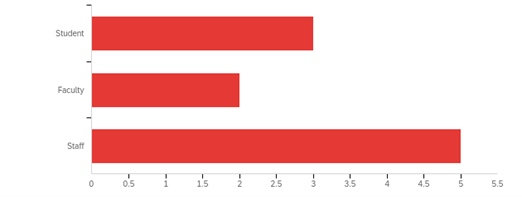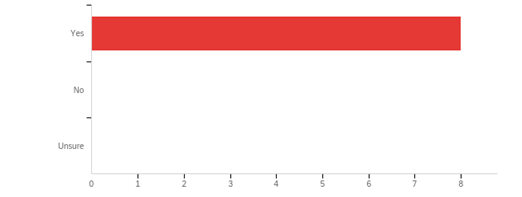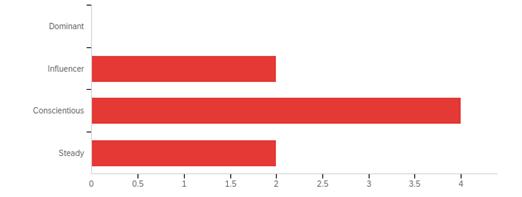
November 2023 DEI Results: Sensitivity and Communication
Results:
At which Campus do you currently attend/work?
At which Campus do you currently attend/work?

*A total of 9 people participated in the survey: 8 were from Athens campus and 1 was from Dublin Campus.
You are currently a:
You are currently a:

*Results were 3 students, 2 faculty members and 5 staff members completed the survey.
What does it mean to you when you hear “sensitivity and communication” in health care?
What does it mean to you when you hear “sensitivity and communication” in health care?
- Sensitivity and communication are essential to building relationships with patients and healthcare team members. With increased efforts, patient outcomes are better!
- Being respectful of a whole person. Not being dismissive or relying on stereotypes and bias as the basis for interaction. Listening and appropriately responding.
- It means properly discussing issues with a client/patient in a way that they feel comfortable and heard.
- Ensuring the patient's care is extended beyond the acute, physical, and immediate needs and their unique beliefs, traumas, and concerns are taken into consideration when being treated. Providing education to healthcare providers about various belief systems and trauma responses along with communicative training such as motivational interviewing. Healthcare appointment spacing largely does not currently allow for sufficient sensitivity and communication on the provider's part.
Can sensitivity be taught?
Can sensitivity be taught?

*Results were all 8 people who participated saying sensitivity can be taught.
Which communication style best describes you:
Image involved chart including:
Dominant -Decisive, Efficient, Intense, Result-orientated, Competitive, Risk-tolerant
Influencer - Outgoing, Enthusiastic, Persuasive, Relationship-orientated, Lively, Optimistic
Conscientious - Systematic, Logical, Reserved, Process-oriented, Cautious, Risk-averse
Steady - Cooperative, Relaxed, Patient, Support-oriented, Friendly, Thorough

*Results were 0 people were dominant, 2 people were influencers, 4 people were conscientious, and 2 people were steady.
What are some examples of sensitive and insensitive behaviors or language that you have encountered or witnessed in a healthcare environment? How did they affect you and others involved?
What are some examples of sensitive and insensitive behaviors or language that you have encountered or witnessed in a healthcare environment? How did they affect you and others involved?
- Sensitive: Ask what the person's thoughts are regarding any possible issues Insensitive: Just stating what we think without regard to the other person's situations or experiences
- Sensitive: Ask what the person's thoughts are regarding any possible issues Insensitive: Just stating what we think without regard to the other person's situations or experiences
- Healthcare providers must be educated that not all weight-related problems must be discussed at every appointment. Not all issues are weight-related and not every patient needs to hear that their weight is an issue constantly. They know! They are probably trying to fix this, but all weight issues are not because the patient doesn't care.